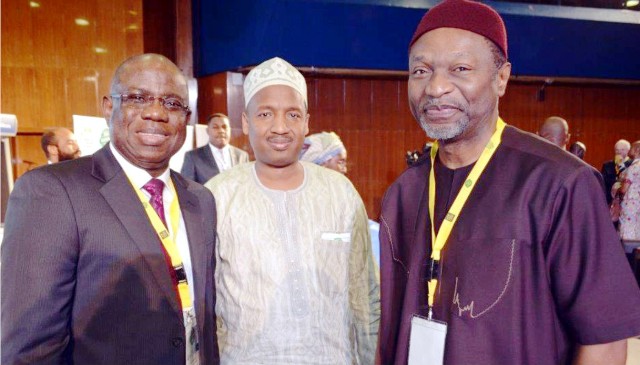Business
Nigeria To Inaugurate SME Dev Bank -Buhari

President Muhammadu Buhari on Friday in Berlin, Germany, said a new bank, Development Bank of Nigeria, would soon begin operations to strengthen the government’s economic diversification programme.
The President, who stated this in a statement, said the bank, when fully operational, would support small and medium enterprises in the country, by improving their access to financing.
According to a statement issued by Malam Garba Shehu, the president’s Senior Special Assistant on Media and Publicity, said Buhari was speaking at the German-Nigeria Business Forum in Berlin, Germany.
“Our ambitions of creating a diversified and inclusive economy in Nigeria can only be achieved by having a mix of small, medium and large businesses.
“This is why we worked with the German development agency, KFW, in designing the Development Bank of Nigeria, which will support the small and medium size enterprises, both financially and technically to ensure they take their rightful place in the industrialization value chain.
“I am pleased to announce that Development Bank of Nigeria will be taking off soon and should be a game changer in our economic diversification plans,’’ he said.
President Buhari, who described Foreign Direct Investment (FDI) into Nigeria from Germany as modest, urged prospective investors at the gathering to go beyond the expressions of interest and make binding commitments for trade, investments and industry.
He said such investments should be in the key priority sectors of Agriculture, infrastructure, solid minerals and digital economy.
He said Nigeria, which recorded a trade volume of 2.96 billion dollars with Germany in 2015, still had a great deal of unexploited potential and room to diversify its exports to Germany and increase overall trade volumes.
According to the President, trade relations between both countries primarily take the form of oil and gas exports from Nigeria, machinery, vehicles and vehicle parts, telecommunications technology and chemical products in the other direction.
“Nigeria has remained a country of potential. Now we are in a hurry to develop and realize that potential.
“Nigeria is not yet where we would like it to be, but I am confident that the Government and people of Nigeria are determined to a CHANGE and be where we would like Nigeria to be.
“A major economy, that is subject to good governance on the basis of the rule of law and constitutional order and a responsible member of the international community,’’ he said.
According to him, with the successes recorded in the fight against terrorism and his administration’s resolute commitment to the war against corruption, Nigeria is open for business and broader relationship with Germany.
“We have boldly set out to bring an end to a culture of impunity and abuse of public trust.
“Corruption is the reason why we went through years of an oil boom and came out with very little to show in terms of savings or investments.
“Corruption is the reason our military struggled for so long against Boko Haram.”
According to him, corruption is one of the reasons that in spite of the nation’s rich human and natural resources as a country, 70 per cent of its population continue to live in poverty.
“Now we have said enough is enough. It is time to make public funds work for the public good.
“And that is why we are bringing culprits to book and recovering looted funds and assets,’’ he added.
Transport
Automated Points Concession : FAAN Workers Gave 72hrs To Revise Decisions In PH

Transport
FAAN Announces Pick-Up Points for Go-Cashless Cards

Business
Fidelity Bank To Empower Women With Sustainable Entrepreneurship Skills, HAP2.0
-
Politics2 days ago
2027: NIGERIANS FAULT INEC ON DIGITAL MEMBERSHIP REGISTER DIRECTIVE
-

 Environment2 days ago
Environment2 days agoLAWMA Director Says Sweeping Reforms Have Improved Waste Collection
-
Politics2 days ago
LP Crisis: Ex-NWC Member Dumps Dumps Abure Faction
-

 Sports2 days ago
Sports2 days agoAbia Not Sure To Secure continental Ticket
-

 Politics2 days ago
Politics2 days agoUmahi Dismisses Allegations On Social Media, Insists On Projects Delivery
-

 Transport2 days ago
Transport2 days agoFAAN Announces Pick-Up Points for Go-Cashless Cards
-
Sports2 days ago
La Liga: Yamal Records First Career Hat-trick
-

 Sports2 days ago
Sports2 days agoCity Survive Leeds’ Challenge At Elland Road

